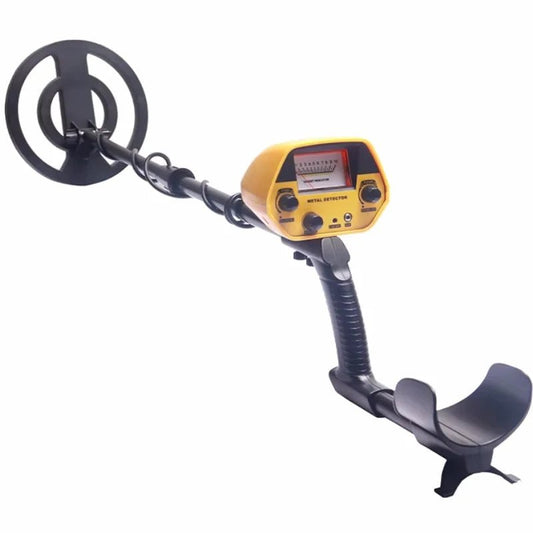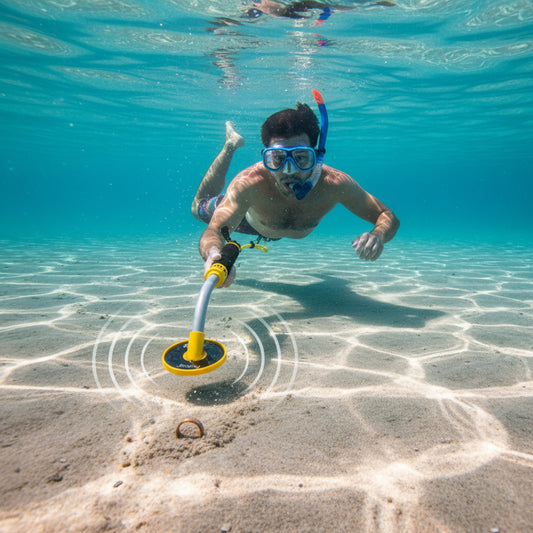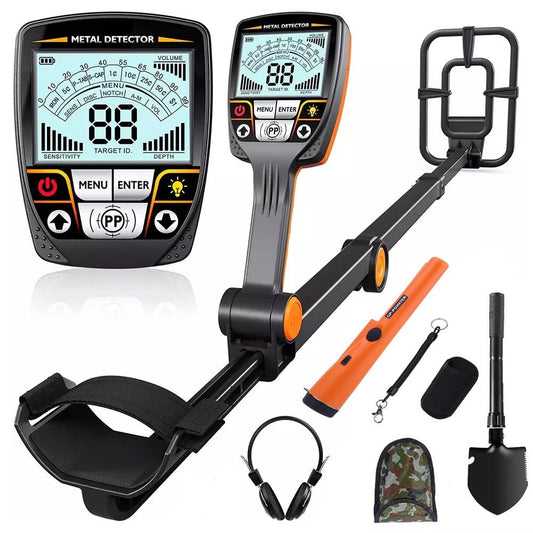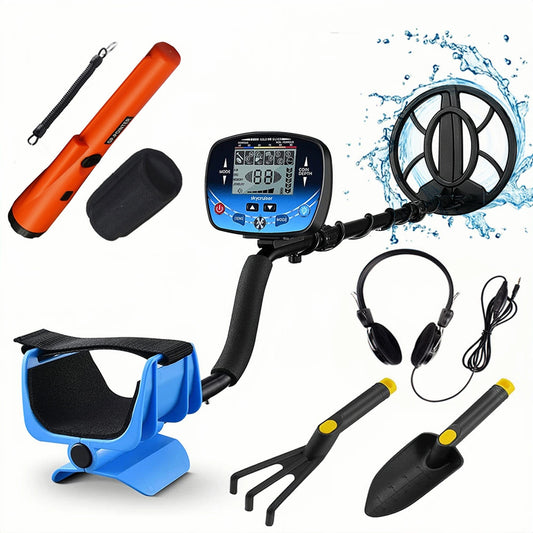
Metal Detecting in Argentina: Pampas, Beaches, and Permissions
Share
Argentina’s vast Pampas, beautiful beaches, and rich history make it a fascinating destination for metal detecting enthusiasts. From rural plains to Atlantic shores, the country offers diverse opportunities for finding coins, relics, and even gold.
However, understanding Argentina’s metal detecting laws and knowing where you’re allowed to hunt is essential for a rewarding and trouble-free experience.
This guide covers everything you need to know about metal detecting in Argentina, including legal tips, top locations, and best practices.

Is Metal Detecting Legal in Argentina?
Metal detecting in Argentina is generally allowed, but with important restrictions. The country’s laws are relatively open for hobbyists, but there are strict rules around protected heritage areas and archaeological sites.

Key legal points:
-
Public Areas: Metal detecting is permitted in many public spaces, including some beaches and parks.
-
Heritage Sites: Archaeological sites, historic landmarks, and state parks are strictly protected. Detecting in these areas is prohibited without special permission.
-
Private Land: Always obtain explicit permission from landowners before detecting on private property, including rural estates and old farmhouses.
-
Military Zones: Metal detecting is not allowed in military areas for safety and security reasons.
-
Penalties: Non-compliance with these laws can result in fines or legal action, especially if you remove artifacts from protected areas.
Best practice: Always check with local authorities or municipalities about specific rules, as some provinces or towns may have additional restrictions.
The Pampas: Rural Metal Detecting Opportunities

The Pampas, Argentina’s vast grasslands, are a treasure trove for detectorists interested in rural history. These plains were once home to gauchos, colonial settlers, and trade routes, making them ideal for finding old coins, horse tack, and relics.
Tips for detecting in the Pampas:
-
Old Homesteads: Seek permission to search around abandoned houses, barns, and wells.
-
Trade Routes: Focus on areas near historic trails and river crossings.
-
Ghost Towns: Some Pampas towns have been abandoned for decades and may yield coins, tokens, and relics.
-
Hunting Camps: Off-season, these can be excellent places to find lost items.
Reminder: Always fill your holes and leave the land as you found it to maintain good relationships with landowners.
Beaches: Where to Metal Detect on Argentina’s Coast
Argentina’s Atlantic coastline offers a mix of busy resort beaches and remote stretches perfect for metal detecting. Here are some of the best beaches to try your luck:
Mar del Plata
The country’s most famous beach city, Mar del Plata, attracts millions of visitors each year. The high foot traffic means a steady supply of lost coins, jewelry, and other valuables, especially after busy weekends or festivals.
Pinamar & Villa Gesell
Popular with Argentine vacationers, these beaches are great for finding modern coins and jewelry. Early mornings or after storms are the best times to search.

Playa Piedras Coloradas (Las Grutas)
Known for its warm waters and unique rock formations, this beach in Río Negro province is less crowded and ideal for peaceful detecting.

El Doradillo (Puerto Madryn)
While famous for whale watching, this Patagonian beach is also a good spot for finding lost items, especially during tourist season.

Beach detecting tips:
-
Use a waterproof detector and sand scoop for efficient searching.
-
Detect at low tide for more exposed sand and better chances of finds.
-
Stay clear of marked protected areas or wildlife reserves.
Check out our article about the best tips and advices for beach metal detecting.
Urban and Historic Sites
City parks, old churches (outside cemetery grounds), and abandoned drive-in theaters can also be productive locations. Always get permission for private or restricted areas, and be aware that some urban parks may have local rules about digging.
Gold and Mineral Prospecting

Argentina is rich in minerals, with gold, copper, and other metals found in regions like San Juan, Catamarca, and the Andes. However, gold prospecting and mining are regulated by federal and provincial laws. If you’re interested in mineral detecting:
-
Research mining codes and obtain proper permits.
-
Never prospect in protected natural reserves or indigenous lands.
-
Most goldfields are in remote, mountainous areas—travel with a guide and prioritize safety.
How to Get Permission for Metal Detecting
-
Private Land: Approach landowners respectfully and explain your hobby. Written permission is best.
-
Public Parks: Contact local municipal offices for rules and possible permits.
-
Heritage or Protected Sites: Special permits are rarely granted to hobbyists, but may be possible for academic research.
Safety and Responsible Detecting

-
Dress for the environment—sturdy shoes, sun protection, and plenty of water are essential.
-
Watch for wildlife, especially in rural and Pampas regions.
-
Always fill holes and dispose of any trash you find.
-
Respect local customs and be friendly to curious onlookers.
What Can You Find?

Common finds in Argentina include:
-
Modern and old coins (pesos, centavos, foreign currency)
-
Jewelry (rings, bracelets, necklaces)
-
Horse tack, buttons, and colonial relics in the Pampas
-
Historic tokens and trade items
-
Occasional gold flakes in mineral-rich areas
Conclusion
Metal detecting in Argentina offers a blend of adventure, history, and natural beauty. With open laws in many areas, diverse landscapes, and a rich past, it’s a rewarding destination for treasure hunters. Always respect local regulations, secure permissions, and hunt responsibly—who knows what treasures the Pampas or the Atlantic coast may reveal?




